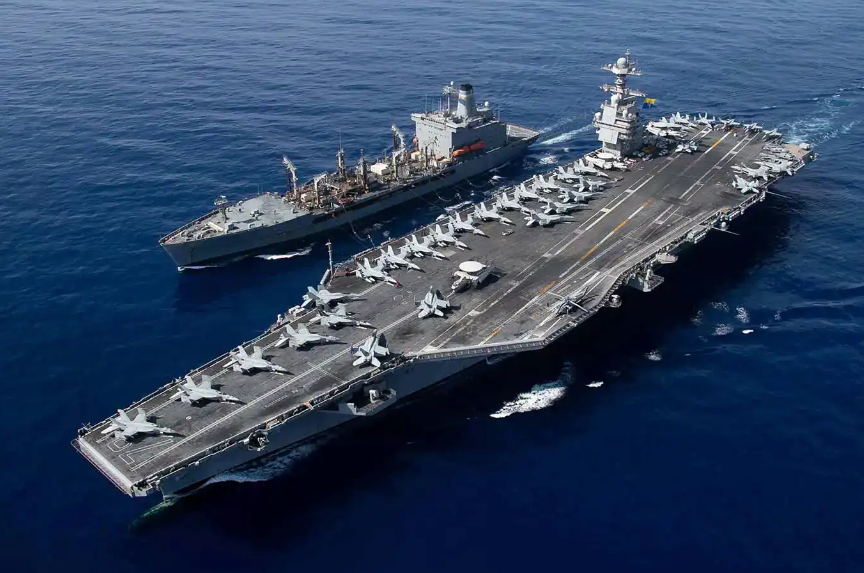ALWAGHT- Venezuela has declared a “massive mobilization” of troops and weaponry following the arrival of a US aircraft carrier strike group in the Caribbean, escalating tensions with Washington.
Venezuela’s Defense Minister Vladimir Padrino López announced a large-scale military exercise involving land, air, naval, and reserve forces to strengthen “command, control, and communications” systems. Ordered by President Nicolás Maduro, the drills are a direct response to what Caracas calls the “imperialist threat” of the US military presence in the Caribbean. The exercises include participation from the Bolivarian Militia, part of Maduro’s “Independence Plan 200,” designed to coordinate both military and civilian defense forces in case of external aggression.
The mobilization follows the arrival of the USS Gerald R. Ford, the world’s largest aircraft carrier, in the US Southern Command’s area of operations. The carrier strike group, consisting of over 4,000 sailors, nine air squadrons, and multiple warships, was redeployed from Europe by order of Defense Secretary Pete Hegseth to target drug trafficking and bolster regional security. Washington claims to have launched nearly 20 anti-smuggling strikes in the Caribbean and Pacific in recent weeks, resulting in about 75 deaths.
Additional US assets—including the Iwo Jima Amphibious Ready Group, the 22nd Marine Expeditionary Unit, ten F-35 jets, and several MQ-9 Reaper drones—are now operating in or near Puerto Rico. With roughly 15,000 US troops stationed across the Caribbean, the buildup has raised alarms of a potential confrontation reminiscent of Cold War-era tensions in the Western Hemisphere. Regional observers see the deployment as a major escalation between Washington and Caracas.
While US officials justify the military presence as part of a counter-narcotics campaign, Latin American leaders and legal experts question the legitimacy of the operations. Critics argue that recent US strikes on suspected drug boats amount to extrajudicial killings and may serve as cover for coercive regime-change tactics. Maduro has accused Washington of fabricating drug-trafficking claims to justify intervention and seize Venezuela’s oil resources. Despite this, President Trump insists that a direct war is unlikely—though he maintains that Maduro’s “days are numbered.”



























